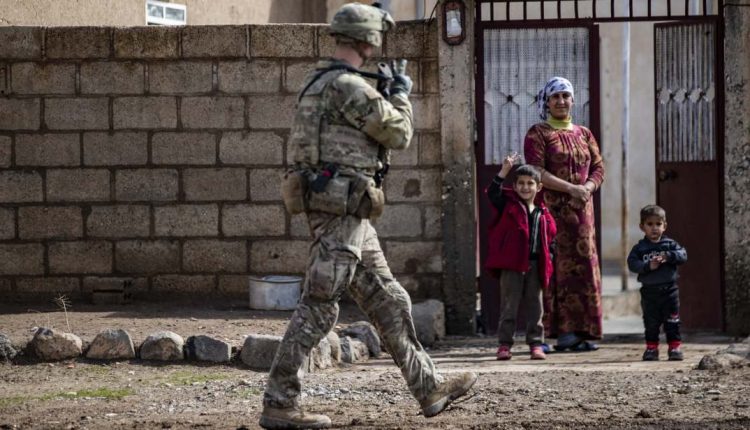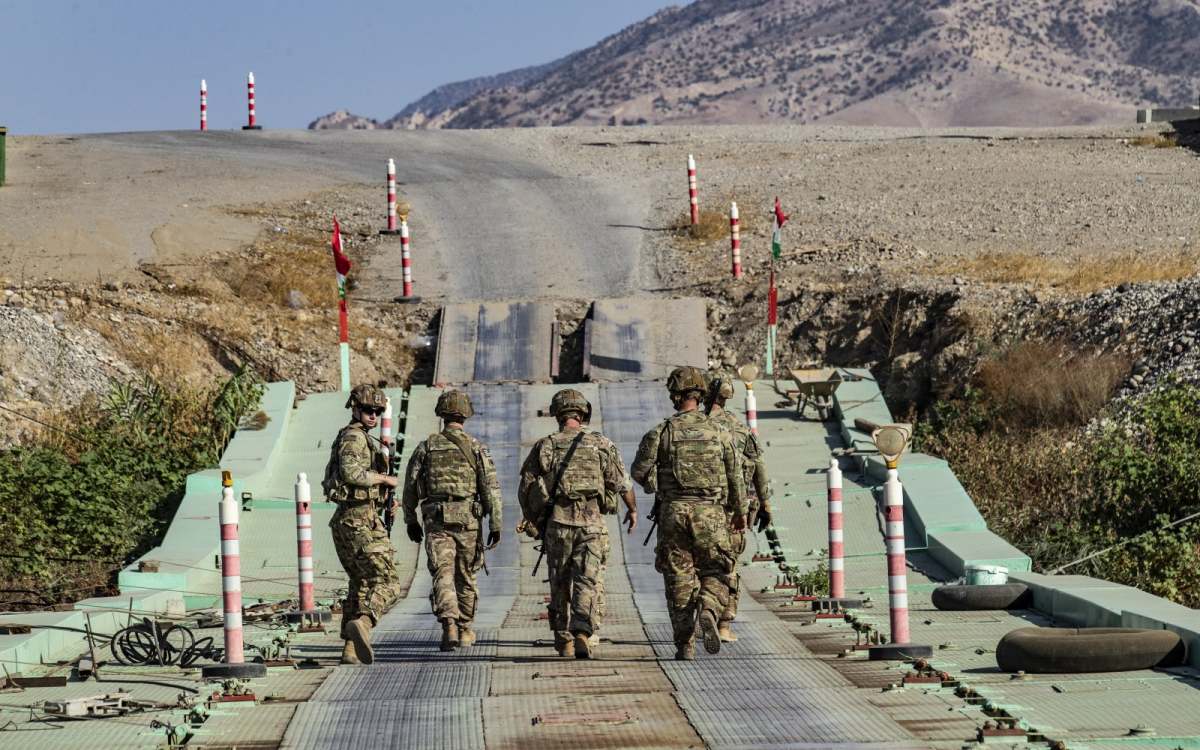Trump & Harris: No Election Promises on Withdrawal from Syria or Iraq
By Shoresh Darwish

At the beginning of his presidency, President Joe Biden seemed poised to initiate major troop withdrawals after the last withdrawal of U.S. troops from Afghanistan in 2021. Shortly thereafter, he adjusted the nature of U.S. military presence in Iraq, limiting it to an advisory role. Despite this, Biden has maintained the number of U.S. troops in Iraq and Syria as established by his predecessor, Donald Trump—specifically, 2,500 troops in Iraq and 900 in Syria—along with an unspecified number of contractors.
As Biden enters the short time remaining in his term, he does not appear inclined towards any withdrawal from Iraq and Syria, seemingly aiming to leave this strategic issue to his successor, whether it is Kamala Harris or Trump. This topic, however, remains unaddressed by both candidates. Notably, the issue of withdrawal from Syria and Iraq has not been discussed or included as a campaign promise in either Harris’s or Trump’s campaigns, which may suggest that the decision depends on the evolving situation in the Middle East.
The question of withdrawal is closely linked to the ability of isolationist voices in Washington to curb the “endless wars” policy that both the Obama and Trump administrations sought to move away from, each in their own way. However, the appeal of the isolationist approach has diminished significantly as the perception grows that the “second Cold War” between China and the United States necessitates that the U.S. and its allies fulfill their responsibilities and carefully assess their interests.
In an extensive article in Foreign Affairs discussing the “dangers of isolationism,” former National Security Advisor and Secretary of State Condoleezza Rice noted that while history does not repeat itself, it does resemble previous patterns, with “reactionary powers gaining territory by force and the international system collapsing.” The most striking and concerning similarity is that today, as in prior eras, the United States tends to turn inward.
Rice’s pessimistic outlook, particularly before the presidential election, reflects fears of a potential shift towards isolationist policies that prioritize domestic issues while neglecting the real threats to Americans and the international system, which are fundamentally external. She presents an “apocalyptic” vision warning of the world’s end, substituting the four horsemen of the Apocalypse mentioned in the Book of Revelation—conflict, war, famine, and death—with four contemporary horsemen leading the world toward its demise: “populism, nationalism, isolationism, and protectionism.” In this context, Rice views isolationism, perceived as a legitimate policy with supporters in American circles, as a Pandora’s box that could enable Vladimir Putin and Xi Jinping, following their victories in Ukraine, to pursue further conquests, thereby reshaping the international system to align with their interests.
Of course, isolationism and the subsequent implementation of withdrawals could lead to a resurgence of Iran. According to Rice, “Iran will celebrate the withdrawal of the United States from the Middle East and bolster its illegitimate regime through foreign invasions conducted by its proxies. Hamas and Hezbollah will wage more wars and hopes for Gulf Arab states to normalize relations with Israel will be dashed.” This perspective gains clarity in light of the events following October 7, as Syria and Iraq are no longer merely fragile corners of U.S. foreign policy but have become central to efforts to stabilize the Middle East.
As part of its mission to monitor Iran’s behaviors and those of its affiliated militias, Washington must postpone discussions about withdrawal, even if tensions between Israel and Hamas or Hezbollah cool down. Effective monitoring requires not just deploying naval assets but also strengthening the U.S. military’s presence on the ground.
Ironically, U.S. naval diplomacy has effectively disrupted the larger conflict that Tel Aviv desires to engage in, a conflict that both Tehran and Washington seek to avoid. However, this rigid diplomatic approach cannot contain Iranian ambitions, its growing military capabilities, or its open logistical support for pro-Iranian militias across borders. This highlights the importance of maintaining a ground presence along the vital lifeline running through Iraq and Syria.
Iraqi governmental and military officials are eager to urge Washington to conclude Operation Inherent Resolve. Although this enthusiasm may have diminished somewhat due to recent events since October 7, demands from Baghdad are likely to increase following the end of the conflict in Gaza. The commitment to end the presence of international coalition forces within two years raises further speculation about Iran potentially filling the vacuum left by the U.S.

Washington seems unconvinced by the scenario of involving Iraqi Prime Minister Mohammed Shia al-Sudani’s government, as there are concerns that such a vacuum could yield an opportunity for Tehran to extend its control over Iraq and deepen its influence in Syria.
Moreover, the risks associated with the resurgence of ISIS’s terrorist activities in Iraq and Syria remain a priority, despite a recent decline in both international and U.S. interest in this issue. Washington’s potential abandonment of its reliable allies on the ground could result in an irreplaceable loss if the region were to spiral back into an era of terrorism.
If Harris assumes office, she may continue Biden’s approach in addressing the complexities of the Middle East, ensuring that this issue does not become secondary to the wars in Ukraine and monitoring China’s activities. Conversely, if Trump wins, he might diverge from his previous sharp withdrawal policy from Syria, which was based on currying favor with Turkey; this time, the focus will be on the interests of Israel and Turkey rather than the relationship between the Kurds and Turkey.
Overall, regardless of whether Harris or Trump wins, the Middle East will not become the ideal region for U.S. isolationist agendas to be implemented or for a final withdrawal policy to be effectuated. The complexities surrounding the region imply that maintaining Israel’s security is crucial in a way that positions Washington as a partner in any decisions to engage in warfare against Iran; the absence of the U.S. could allow Tel Aviv to make unilateral decisions regarding conflict, thereby imposing a new reality on Washington.
Withdrawal may also hinder normalization processes between the Gulf Arab states and Israel, which is a goal Washington aims to achieve soon, as such normalization would enable the U.S. to establish a Middle Eastern buffer against Iran and subsequently redirect focus toward addressing the challenges posed by China and Russia.
The potential resurgence of ISIS also looms large, as reports indicate that the group could regain power and initiate retaliatory attacks, which could foster a new cycle of chaos in the region. Additionally, the presence of thousands of ISIS detainees in the Autonomous Administration’s prisons, along with approximately 50,000 family members in the al-Hol camp, presents a security challenge that necessitates continued international coalition monitoring of developments in northeastern Syria (Rojava).
An article from The Conversation titled “The U.S. Military Presence in Syria Carries High Risks, but a Full Withdrawal Carries Similar Risks” concludes by emphasizing that the issue of withdrawal symbolizes broader challenges facing U.S. foreign policy in the Middle East. The decision to withdraw or remain is a strategic choice that will resonate throughout the region; what applies to Syria in this context also applies to Iraq.



Comments are closed.